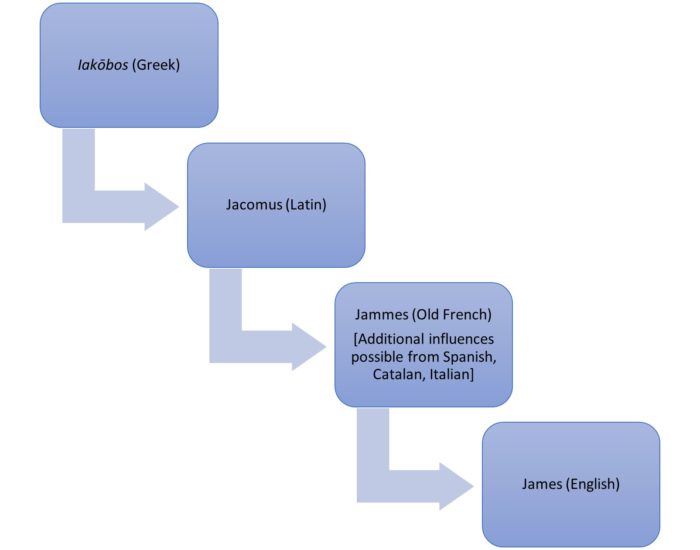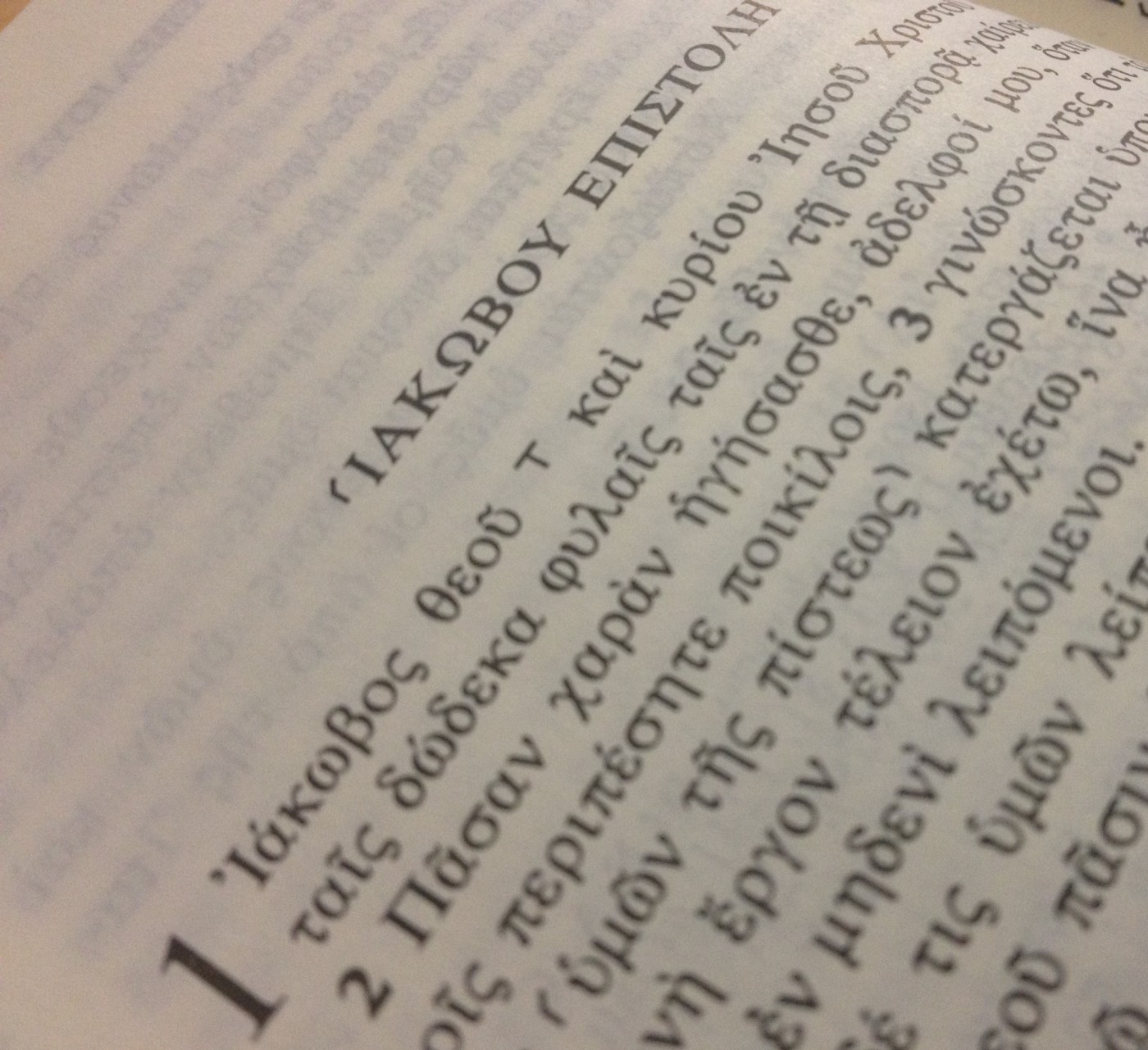Why James Translates Jacob in the New Testament
In James 1:1 we read, “James, a bond-servant of God and of the Lord Jesus Christ, to the twelve tribes who are dispersed abroad: Greetings.” James is the English word for Ἰάκωβος in the Greek. However, Ἰάκωβος is simply a Greek form for the name of Jacob in the OT (יַעֲקֹב). Why do we use the name James for the name Jacob in the New Testament?
Why James Rather than Jacob?
One theory is that during that translation of the King James Bible, the king forced the translators to substitute the king’s name for Jacob in the New Testament because he wanted his name in the Bible. This view is assuredly incorrect, especially since the name James was used by the Wycliffe translation in the 14th century.
One cannot be dogmatic on the issue, but the following seems to be the best reconstruction we can do as to why James is used instead of Jacob in the New Testament.
The English derives from the Old French ‘Gemmes’ or ‘Jaimes,’ which equals the Spanish ‘Jaime,’ Catalonian ‘Jaume,’ and Italian ‘Giacomo.’ These, in turn, derived from the late Latin ‘Jacomus,’ a softening of the earlier Latin ‘Jacobus’ (see also German ‘Jakobus’). The Latin is a straight transliteration from the Greek Iakōbos, which is itself a transliteration of the Hebrew.
L. T. Johnson, The Letter of James, 93
Similarly, the Oxford English Dictionary says the following:
Etymology: < Old French James (Gemmes, *Jaimes) = Spanish Jaime, Provençal, Catalan Jaume, Jacme. Italian Giacomo < popular Latin *ˈJacomus, for ˈJacobus, altered from Latin Iaˈcōbus, < Greek Ἰάκωβος, < Hebrew yaʿăqōb Jacob, a frequent Jewish name at all times, and thus the name of two of Christ’s disciples (St. James the Greater and St. James the Less); whence a frequent Christian name.
Oxford English Dictionary
Perhaps a diagram can help.

Studying the influence of languages on one another can be tricky. This is just one example of the complications involved. Because the English language relies on so many other languages, the influence of those languages shows up in some of the most interesting places—even our English Bibles.
This example is not one of theological richness per se. Nor is it a vendetta on how we must translate the Bible. Rather, it is simply study of interest. It is a good reminder that there are often more complications involved in Bible translation than we sometimes realize. And some of these hidden intricacies in the world of English Bible translation are helpful to know.

2 Comments
Peter Goeman
Glad it was helpful Daniel.
Daniel
It was refreshing to come across this. I couldn’t tell you how many times I’ve heard someone parrot the “King James translators were sucking up to King James”
Thanks for setting the record straight.